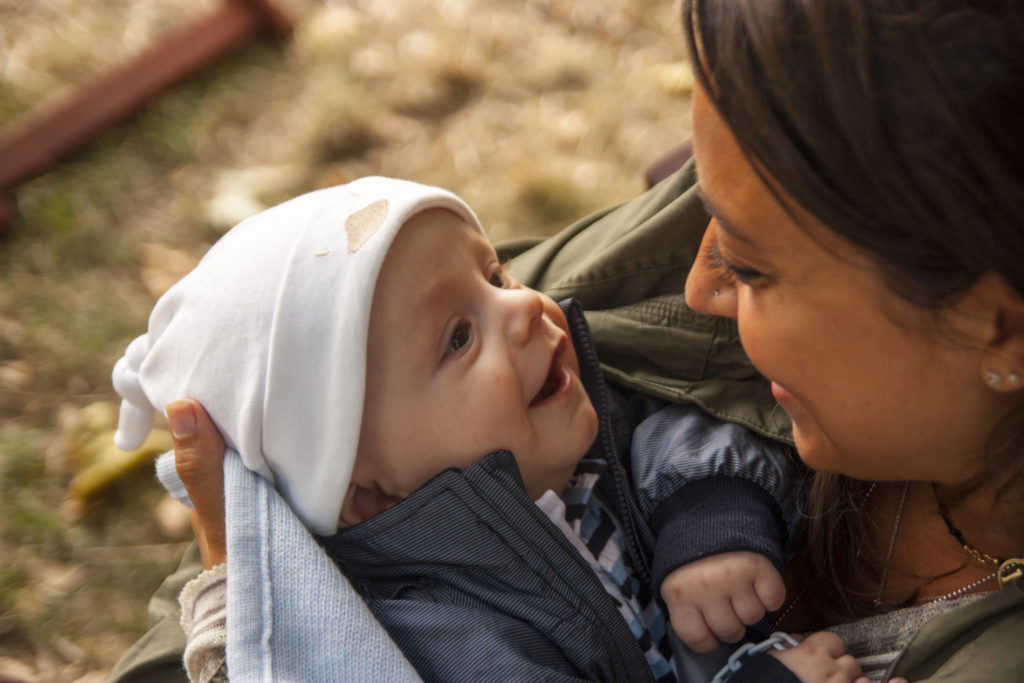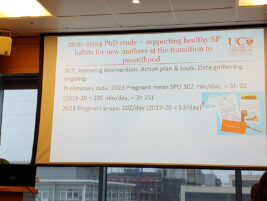In 2013 I worked at the Khayelitsha District Hospital as a community service clinical psychologist. All graduating clinical psychologists in South Africa are required by law to complete a year of community service before they are able to register with the Health Professions Council of South Africa (HPCSA) as independent practitioners. The professional training of clinical psychologists entails a Masters degree of a year of theoretical training (in some institutions this period is two years) and another year for practical training through an internship. Following the internship, clinical psychology trainees are required to do a year of community service prior to qualification. (Dube, 2011; Pillay & Kometsi, 2007; Rohleder, Miller & Smith, 2006).
Khayelitsha is a peri-urban settlement with over half a million residents, half of whom are without formal employment (MSF, 2009). I spent 3 days in the Khayelitsha District Hospital and offered services to two Community Health Centres (CHC) in Khayelitsha: Site B (Day Hospital) and Site C (Nolungile Clinic). At Site C, a primary healthcare site, the occupational therapist, psychiatric nurse and I facilitated a parenting skills workshop.
Setting the scene
In the first week of my community service year, I was assigned a case. A 6 year old girl, Mbali (Mbali is not the client’s real name. The client’s name is not displayed in order to maintain client confidentiality.) was referred for psychological assessment and treatment. She hadn’t been seen as yet because she speaks isiXhosa and my colleague did not. So my arrival was a boon. My colleague had just been offered a permanent post at the Hospital following her community service year in 2012.
I met with my young client’s parents; they were open and eager for Mbali to be helped. It was noted that Mbali was very anxious, she was easily startled and was apprehensive around adults. Mbali’s parents were unmarried, her mother was currently unemployed and her father had casual work on weekends. Mbali lived with her mother in her maternal grandmother’s house along with a few other extended family members and a mentally ill uncle. It came to the fore that Mbali’s mother used to work at night when she was a toddler and often had to leave Mbali in the care of her extended family members. It was noted that on more than one occasion Mbali’s mentally ill uncle would have psychotic episodes, break windows and there would be a spectacle in the house. Mbali later noted how scary these incidents were for her. There had been no complaints at school about Mbali’s behavior. However, her parents had been encouraged to assist her with some of her school work. Mbali’s parents noted that she had a lot of friends at school and at home. Mbali hardly spoke in sessions but really enjoyed drawing and colouring in. When the sessions ended Mbali would often refuse to leave and her parents would have to carry her out of the therapy room.
There was a lot going on with Mbali but most of what she was experiencing was as a result of the environmental circumstances that she found herself in. Life at home was at times scary and unpredictable. Her parents were often not there to soothe her and help her make sense of what was happening around her. It was unclear whether anyone comforted her when her uncle became uncontained. There was no structure or routine in Mbali’s life, she was expected to merely adapt to the circumstances. I saw Mbali a handful of times before her mother, heavily pregnant with her second child found it too difficult to bring Mbali to therapy and Mbali’s father was unable to bring her to therapy due to a death in his extended family. Therapy was abruptly terminated.
A CHC Workshop
More and more, I saw many cases where I felt that the introduction of basic parenting skills could go a long way in facilitating better attachment between parents and their children. Thus the CHC workshop came about. It was a 4-week workshop for parents/caregivers of children who were receiving psychiatric treatment at Nolungile. These were children who had been diagnosed with ADHD, depression, an anxiety disorder, substance abuse or exhibited ‘disruptive behavior’ as well as children whose parents had a psychiatric illness and were receiving treatment at the Clinic. The workshop sought to support parents/caregivers by helping them understand why children present with disruptive behavior.
The workshop looked at self-reflection so as to highlight the link between parents’ well-being and their children’s well-being. The workshop helped the participants gain a better understanding of mental illness and how at times emotional distress can manifest through behavior. The workshop touched on self-care and, in addition, the occupational therapist (OT) discussed stress-management with the participants. Information pertaining to community based stakeholders and resources, was also made available to parents/caregivers for other avenues of support.
First Pilot
The first pilot of the workshop was merely referred to as a parenting skills workshop. The group fizzled out fairly quickly, starting with 5 participants, then 3, then 1 and ultimately we terminated with a single participant. The average age of the participants in the first group was 40, they were all Black isiXhosa speaking females. My team, save for the psychiatric nurse, was relatively young and it didn’t help that I look younger than I am. The OT was an English speaking, coloured lady in her mid- twenties. The psychiatric nurse was a middle aged, black isiXhosa speaking male and I, a black isiZulu speaking female in my late twenties. My supervisor implored me to consider, notwithstanding other considerations, what my participants told other community members about the group. One could imagine the difficulty of noting that they were going to a workshop to learn more about how to parent their children led by two, twenty something year olds and some man (the psychiatric nurse).
Second Pilot
The second pilot was then named the Masakhane Club. Masakhane, loosely translated, means ‘let’s build one another’ in isiXhosa and isiZulu. The participants were female isiXhosa speaking and in their late thirties, they were offered individual sessions with me along with vocational rehabilitation by the OT which aimed at helping them seek employment (assistance drafting a CV etc) or helping their children find suitable schooling and/or work placement in the event of intellectual disability. This sought to offer the clients comprehensive support over and above the workshop and psychiatric assistance. This proved fruitful as the retention rate was higher with group members attending most of the sessions (individual and workshop) however there were heavy rains which led to flooding of most homes as is the case very often in winter in Khayelitsha, many homes are destroyed and families left homeless. Two group members were affected.
The four-week workshop had modest aims to help facilitate a mild shift in the way that parents viewed their children’s seemingly disruptive/unusual behaviour. The participants welcomed the Masakhane Club initiative and noted that much of what was covered were things they had never paid much attention to until the workshop. It was almost as though the participants were constantly in motion and the workshop made them stop and reflect on what they were doing and how they were going about doing what they were doing.
Working in Disadvantaged Communities
Working in the CHC’s poses numerous challenges as one is working in very disadvantaged communities where most of the clients reside in informal dwellings (shacks), are unemployed and may not know where their next meal is coming from. Substance abuse and violence is rife. Often people are just doing their best to survive. The CHC’s are overburdened with high demand and not enough staff to meet the community’s needs. For example, one intern doctor at the Nolungile Clinic, noted that on average she saw around 40-50 clients a day. In respect to mental health, one finds that there is not much understanding of the role of a clinical psychologist. Clients often do not know what to expect from an encounter with a clinical psychologist, nor are they familiar with the process of therapy.
In 2011, as part of the requirements for my Masters, I undertook a study to look at the experiences of community service clinical psychologists. It was a phenomenological study with 8 participants. The absence of understanding the role of a clinical psychologist was one of the themes highlighted, as well as clinical psychologists being a scarce resource and the pressure that it engendered to do more than what they were offering. The community service clinical psychologists had to market themselves and conduct psycho-education at their various community service placements sites, not only to clients but to professional medical staff (nurses and doctors) as well (Dube, 2011).
The majority of the community service clinical psychologists in my study were faced with a heavy workload. The nature of the cases was experienced by some as difficult and in some instances traumatic. The community service clinical psychologists were overwhelmed by the levels of violence: physical and emotional that their clients experienced. They encountered many cases of rape, teenage suicide attempts and substance abuse (Dube, 2011). This mirrored my own experience.
Personal Reflections
Working in a disadvantaged community is a demanding endeavor. The clinician needs to always take into cognizance the salient contextual factors such as socio-economic realities, cultural issues, age, race, language and discourses around illness in general and mental illness in particular. These contextual factors must inform the nature of interventions and guide practice. Thus, in my work in setting up the Masakhane Club I knew it would be important to help people understand what my role is, undertake psycho-education as well as help them understand more about the process of therapy. In this way, I sensitized people to the fact that a psychological intervention is unlike a consultation with a family physician where an assessment is done, medication offered and the individual can take on a more a passive role in relation to the doctor and the drugs are expected to take effect. A psychological intervention requires the client to take the lead and drive the healing process while the psychologist is a collaborative or facilitative partner who creates a space conducive for healing.
The Masakhane Club was able to come about on account of the willingness of the members involved to drive the initiative and constantly remaining in conversation with the institution’s leaders with regard to the intervention. I have found that working with a team, in my case the occupational therapist and the psychiatric nurse, is important as it allows the intervention to be owned by the team and not just by one professional, namely the psychologist. This ensured continuity, especially given the transient nature of a community service psychology post. Whereas the community service clinical psychologists may constantly be changing, the psychiatric nurse and the OT remain.
I am privileged that my training was able to adequately prepare me for the vexing challenges of providing psychological services in the context of disadvantaged communities. However, working in Khayelitsha highlighted the lingering hurdle of how to make psychological services more responsive, relevant and accessible to the complex needs of disadvantaged communities. As well as the desperate need for psychological services offered in the client’s vernacular particularly in the treatment of children.
References
Dube, T. (2011). In the trenches: Experiences of recently qualified clinical psychologists of the community service year, Unpublished paper.
Medecins sans Frontieres (MSF) ( 2009). A Patient-Centred Approach to Drug Resistant Tuberculosis Treatment in the Community: A Pilot Project in Khayelitsha, South Africa. https:// www.msf.org/sites/msf.org/files/khayelitsha_2001-2011.pdf. Accessed August 17, 2013.
Pillay, A. L., & Harvey, B. M. (2006). The experiences of the first South African community service clinical psychologists. South African Journal of Psychology, 36(2), 259-280.
Pillay, J., & Kometsi, M. J. (2007).Training psychology students and interns in non-urban areas. In Duncan, N., Bowman, B., Naidoo, A., Pillay, J., & Roos, V. (Eds). Community psychology: Analysis, context and action. (pp. 367- 380) Cape Town: UCT Press.
Rohleder, P., Miller, M., & Smith, R. (2006). Doing time: Clinical Psychologists’ experience of community service in a prison placement. South African Journal of Psychology, 36(4), 795 -812.
Authors
Dube, Thembelihle,
South Africa








